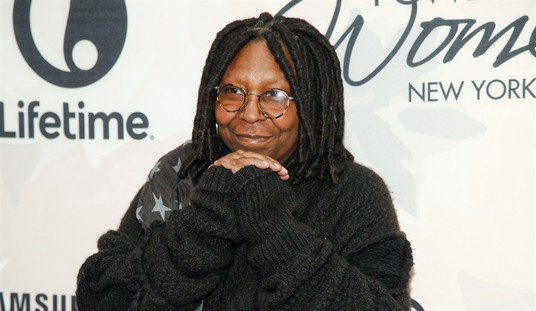With Steven Spielberg and Tom Cruise’s new version of The War of the Worlds set to open later this week, John J. Miller writes that H.G. Wells, its original author, “was a sci-fi pioneer, but his political ideas were abominable“:
Wells, for his part, was often appallingly wrong. “Human history is in essence a history of ideas,” he once wrote. That may be, but Wells flirted with the worst ideas of his time. After interviewing Lenin, Wells called him “creative” and described communism as the best hope for reforming Russia. The man simply never met a collectivist movement that didn’t intrigue him. “There is good in these Fascists,” he said of Italians in 1927. “There is something brave and well-meaning about them.” He despised Catholicism and mocked Jewish traditions as “nonsense.” It was for views such as these that George Orwell delivered a blunt verdict in 1941: “Much of what Wells has imagined and worked for is physically there in Nazi Germany.”
Orwell also was referring to the utopianism that distinguished so much of what Wells wrote. Whereas the author of “Animal Farm” and “1984” possessed a keen sense of how and why totalizing states go badly wrong, Wells was constantly drawing up plans for ideal societies driven by rationalist principles and governed by high-minded elites. This could lead to bizarre results: In “Men Like Gods,” Wells envisioned a scheme of eugenic reproduction and centralized planning so perfect (in his mind) that everybody went shamelessly nude.
Defending this particular notion, Wells commented that the practice of wearing clothes was a silly taboo. He certainly had little patience for sexual mores. Admirers have hailed Wells as a proto-feminist, but he was more accurately an advocate of free love–a doctrine that typically benefits men who shirk their duties. As it happened, Wells treated the women in his life shabbily. He cheated on his wives and impregnated his mistresses.
Maybe he was just acting on Darwinian impulses. Wells was in fact a strident devotee of the evolutionary creed, which he learned from the biologist T.H. Huxley at the Normal School. “The War of the Worlds” is best interpreted as an aggressive statement of what C.S. Lewis called “Wellsianity”–the promotion of materialistic science as true faith. The moral of the story may be found in the novel’s first sentence, which describes the sobering reality of “intelligences greater than man’s and yet as mortal as our own.” Humans aren’t noble creatures of God, but animal feed for hungry Martians. If we are to go on living, it isn’t for any purpose greater than “the sake of the breed” (as one character says in a late chapter).
At least Wells didn’t let the Martians get away with their dastardly plot. They fall victim to disease spread by bacteria, which Wells called “the humblest things that God, in his wisdom, has put upon the earth.” The author of these words would have profited from a little more humility himself. We should be grateful that he left his imprint on the science-fiction genre, and almost nowhere else.
He wasn’t the only British proto-technophile to also be a political radical. Last week, I Googled to find the name of the man who uttered a famous quote to give credit when I paraphrased it in this post. I found the Wikipedia page of early 20th century British geneticist and evolutionary biologist J.B.S. Haldane, which had this staggeringly naive paragraph:
Haldane was himself a very idealistic man, and in his youth was a devoted Communist and author of many articles in The Daily Worker. Events in the Soviet Union, such as the rise of the anti-Mendelian agronomist Trofim Lysenko and the crimes of Stalin, caused him to break with the Communist Party later in life. He joined the Communist party in 1937 but left in 1950, shortly after having toyed with standing for Parliament as a Communist Party candidate.
Hard to believe, of course, that 15 years after the fall of the Berlin Wall that the author of that Wikipedia page could still equate communism and idealism in a single sentence with a straight face without some sort of additional rationalization.
For more on a similar topic, but brought up to date, check out this post on The Volkh Conspiracy, where Clayton Cramer writes, “nothing has really changed; academics are overwhelmingly on the side of totalitarian thugs throughout the world”.










Join the conversation as a VIP Member